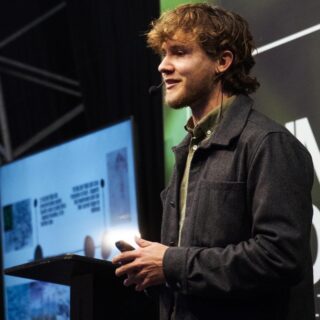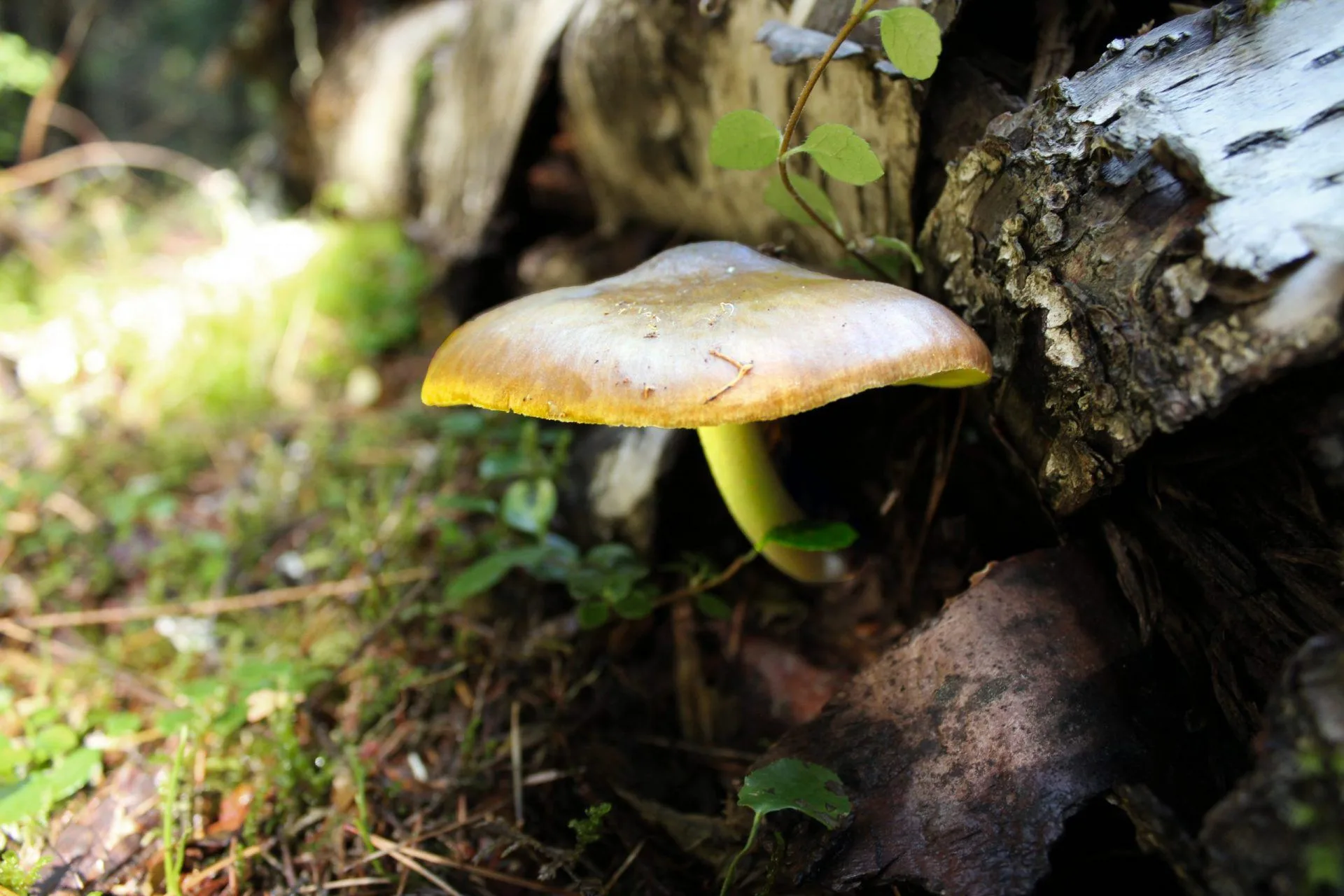Nature heals us, whether we are in the middle of it or eating anything that grows out of it. But the seemingly ordinary mushroom is a special product of nature, taking the health realm by storm. The kingdom of fungi is rich, with some species serving mankind well physically. Nothing new, right? Well, some are going as far as transforming the spiritual and mental health landscape entirely.
Western culture is only now coming to get a taste of the ability of psychedelic mushrooms to impact the world. Nevertheless, indigenous communities have honed the power of this plant-like therapy long before we knew of it. So, it makes sense to lean on their understanding if we want to do the same. And it looks like South Africa is taking slow strides to weave fungi into the fabric of mainstream medicine.
One transcendental mushroom experience, multiple lifelong changes
On Wellness Wednesday, we interviewed Cullen Clark, ethnomycologist and co-founder of Aether Apothecary. The company’s vision is to drive the daily application of herbal and mushroom medicines. In our discussion, he divulged his knowledge regarding psychedelic mushrooms and what to expect from his contribution to our How To Live Beyond 100 bookazine.
Cullen felt compelled to traverse mushroom terrain after a life-changing experience with psilocybin (a.k.a. magic mushrooms). He was stuck in a corporate job, sitting in traffic daily, and feeling unfulfilled. He realized he was wasting his potential and all it took was one divine inward journey, using mushrooms.
It prompted him to quit his job and start his own company alongside his co-founder. Consequently, everything fell perfectly into place. And he can’t attribute this to anything other than fungi, for helping him to awaken his boundless possibilities.
“I think I can bring a lot of peace to people and help them find a bit of purpose. My [mushroom] experience changed my outlook and the whole paradigm around how I conduct myself and move through life. It was extraordinary,” beamed Cullen.
Nature as a pharmacy and healer
Cullen began to comprehend nature as the ultimate pharmacy. This revelation led to the creation of the company he co-founded: Aether Apothecary. It’s a “bio-ceutical” house that manufactures medicine for pharmacies and brands. The splendor of this rests on the fact that they source ingredients entirely from nature.
Some five years after his transcendental event, Cullen lived in a forest with his business partner in the Eastern Cape. He climbed into the role of a custodian of the land, learning how to look for his own medicines and food. He unearthed a reverence for nature that imbued life into his path as an ethnomycologist.
“I got to experience the way that people used to live back in the day. I would tap into that primal nature of being able to distinguish where these things grew, what trees they grow on, what fruits I can eat, and what roots I can dig up,” shares Cullen, “I loved what I did and that formulated this passion for the ecology of fungi and its indigenous use.”
An indigenous history that has not been told before
Ethnomycology is a field that sounds rather foreign to the layman. Essentially, it’s a study of the indigenous use of fungi in tribal people. Now, Cullen discovered that no published documents or books existed regarding the background of psychedelic practices among South African natives. He even requested papers from universities, but to no avail. Yet he knew proof existed.

Cullen Clark, ethnomycologist and co-founder of Aether Apothecary. Image Source: Cullen Clark LinkedIn
Cullen spoke with Sangomas about people using magic mushrooms for all sorts of therapeutic and medicinal uses. There was evidence, only it remained unrecorded. As a result, he set out on a 5-year journey researching it himself, prodding the minds of fascinating people.
“I found that not only do people use mushrooms for gourmet and food use but for therapeutic use. People are also using these mushrooms to access transcendental spaces to commune with the Divine and experience altered states of consciousness,” reveals Cullen.
Bushman paintings are records of psychedelic use in South Africa
Tribal folk gain their knowledge from the generations that precede them. Cullen’s research unveiled how expertise regarding fungi is passed down among indigenous people. Of course, no written records could corroborate this. However, Cullen leaned on painting evidence stored in the record archives of the University of the Witwatersrand.
He spent months sifting through 200,000 images of bushman paintings. Amazingly, the rock art bared it all. It suggests that South African natives have been using psychedelic mushrooms to access trance-like states for thousands of years. Needless to say, Cullen was awe-struck.
We tend to look at more established nations for guidance on psychedelic conversation. Certainly, we don’t discredit them and do praise their findings. But Cullen emphasized the importance of acknowledging South Africa’s history with this magical remedy of nature. On that note, he hopes to dissect and share a history of mushrooms that has not been told before.
Cullen has since been working with the University of Stellenbosch to discover new species and their therapeutic and entheogenic use.
The potential of mushrooms is endless
One can expect to find a mushroom, like lion’s mane, for improved cognitive function. And another for what some might call a ‘spiritual awakening’. Then, of course, you can get your Vitamin D fix by indulging in an Italian portabello mushroom dish. No matter the kind, fungi take the prize for their helping hand with our well-being.
 The world of psychedelic mushrooms knows no frontiers – other than being prohibited by law in most countries. Nevertheless, Cullen believes the future looks promising in South Africa.
The world of psychedelic mushrooms knows no frontiers – other than being prohibited by law in most countries. Nevertheless, Cullen believes the future looks promising in South Africa.
Grab the latest issue of Longevity Magazine
Interested in learning more about the new anti-aging methods on the aesthetics playground?
Access a digital copy of our How to Live Beyond 100 bookazine via Zinio, with the gorgeous Katherine Kelly Lang gracing the cover. Alternatively, readers living in Southern Africa may purchase a hard copy from select retail
Article Image Source: Cullen Clark LinkedIn
Watch The Interview
View this post on Instagram



![women [longevity live]](https://longevitylive.com/wp-content/uploads/2020/01/photo-of-women-walking-down-the-street-1116984-100x100.jpg)










